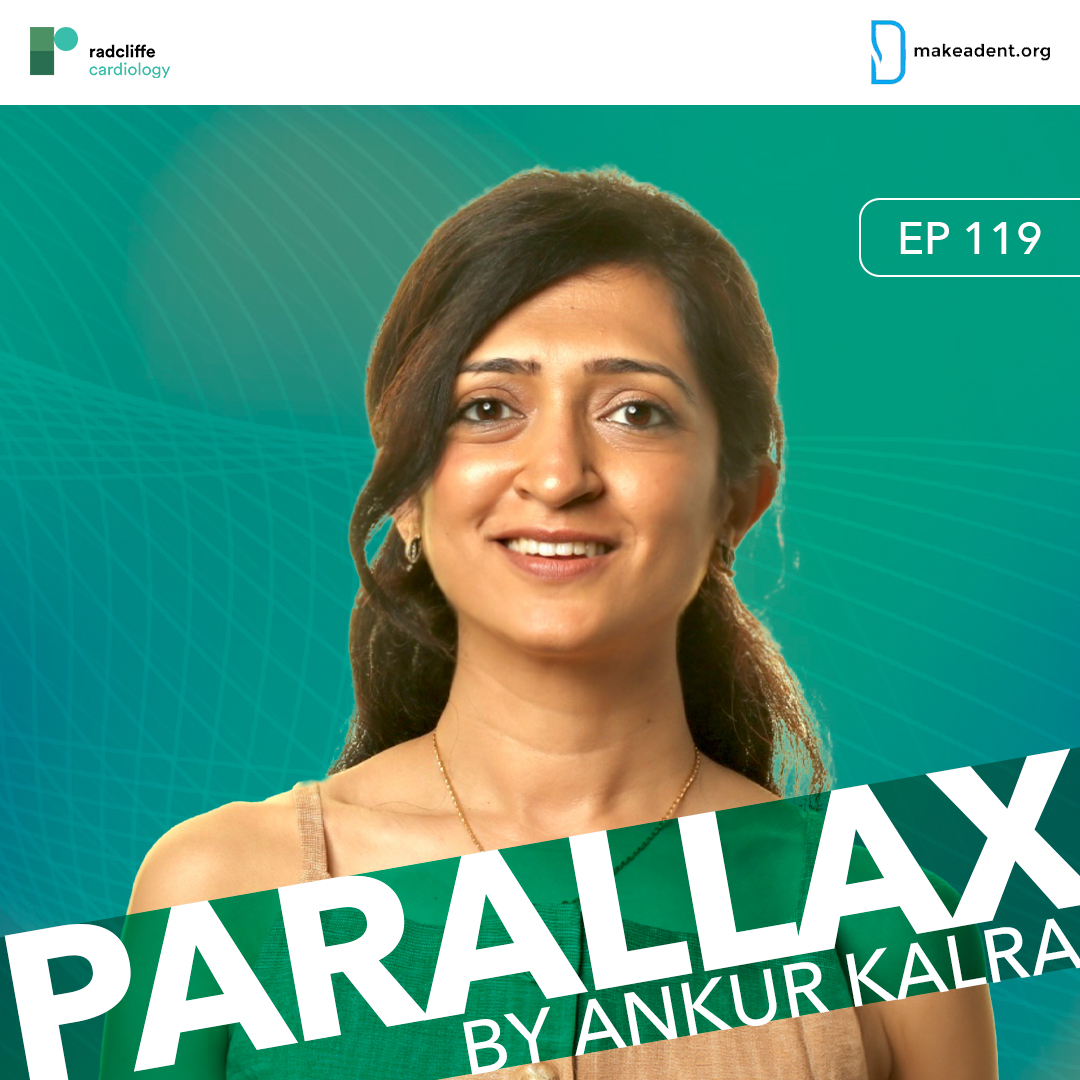
In this episode of Parallax, Dr Ankur Kalra reunites with Dr Purvi Parwani for a deep dive into the groundbreaking data unveiled at ESC Congress 2024.
Dr Parwani, Director of the Women's Cardiovascular Disease Clinic and a leading expert in her field, serves as Associate Professor of Medicine and Director of the Echocardiography Laboratory for Advanced Cardiovascular Imaging at Loma Linda University Health.
Dr Parwani offers a comprehensive analysis of the most impactful trials presented at the congress. She delves beyond the headlines, exploring the practical implications these findings hold for the future of patient care. Dr Kalra and Dr Parwani engage in a stimulating discussion, comparing the new data to prior research and exploring how these insights can be translated into real-world improvements for our patients.
Key Trials included:
- MATTERHORN: Transcatheter versus surgical mitral valve repair in patients with heart failure and secondary mitral regurgitation (NCT02371512)
- RESHAPE-HF2: Percutaneous repair of moderate-to-severe or severe functional mitral regurgitation in patients with symptomatic heart failure (NCT02444338)
- TRI FR: Multicentric randomised evaluation of the transcatheter edge-to-edge repair in the treatment of severe isolated secondary tricuspid regurgitation (NCT04646811)
- RHEIA: Transcatheter versus surgical aortic valve replacement in women with severe aortic stenosis (NCT04160130)
- SENIOR RITA: Older patients with non-ST segment elevation myocardial infarction randomised interventional treatment trial (NCT03052036)


Chest pain is one of the most common reasons for an emergency room visit in the US, with almost 6 million ER visits annually, yet there is no consensus on how to compare the results from various hscTn assays. Tune in to hear Santiago outline the advantages and limitations of using hscTn as a standard biomarket to evaluate patients with suspected ACS in the ER.
Hosted by @AnkurKalraMD. Produced by @RadcliffeCardiology.


He explains how the complexity of nutrition and the compounds generated by the gut microbiome can impact our health. We learn more about three compounds produced by our gut microbiome that have a strong connection with heart disease.
Through this conversation, Dr Vuyisich invites us to reframe our approach to nutrition and prevention as a question of food education and data-driven science.


This episode features a vascular neurologist and an interventional cardiologist who will discuss the relationship between their two fields of medicine.

In this rich and insightful discussion, Dr Kittleson talks about the origins of famous #kittlesonrules, a collection of tips for doctors shared on Twitter, and her thoughts on mentorship. We learn more about Mastering the Art of Patient Care. Dr Kalra and Dr Kittleson discuss strategies for managing difficult situations in patient care.

What do you need to know about hospital investigations? What is the difference between OPPE and FPPE? How can you get educated on hospital bylaws and processes?







